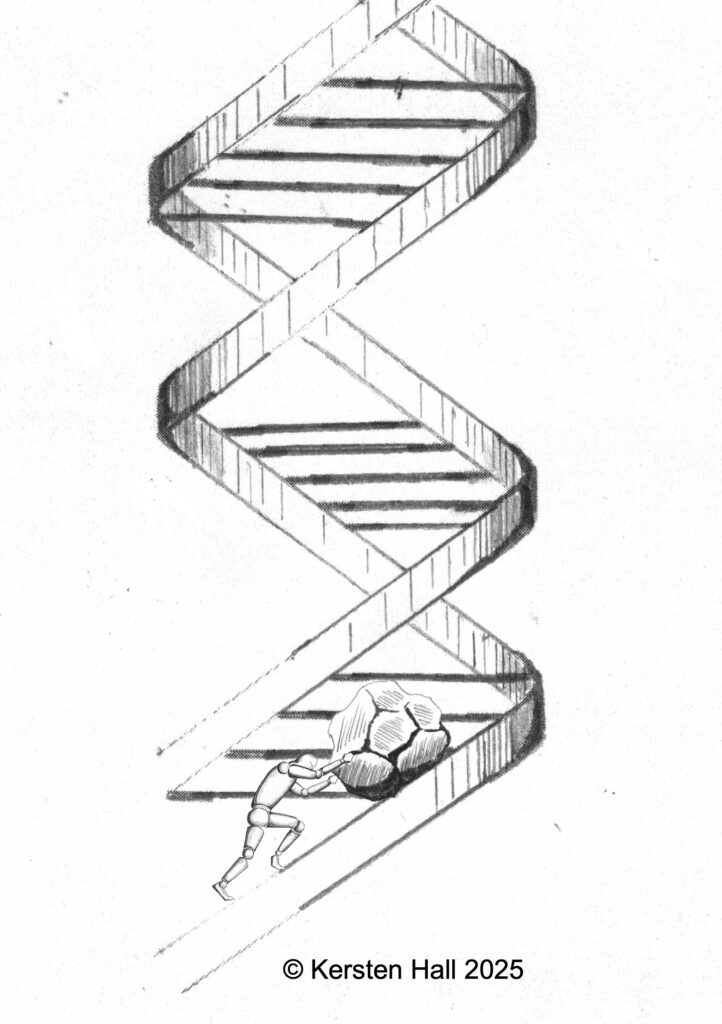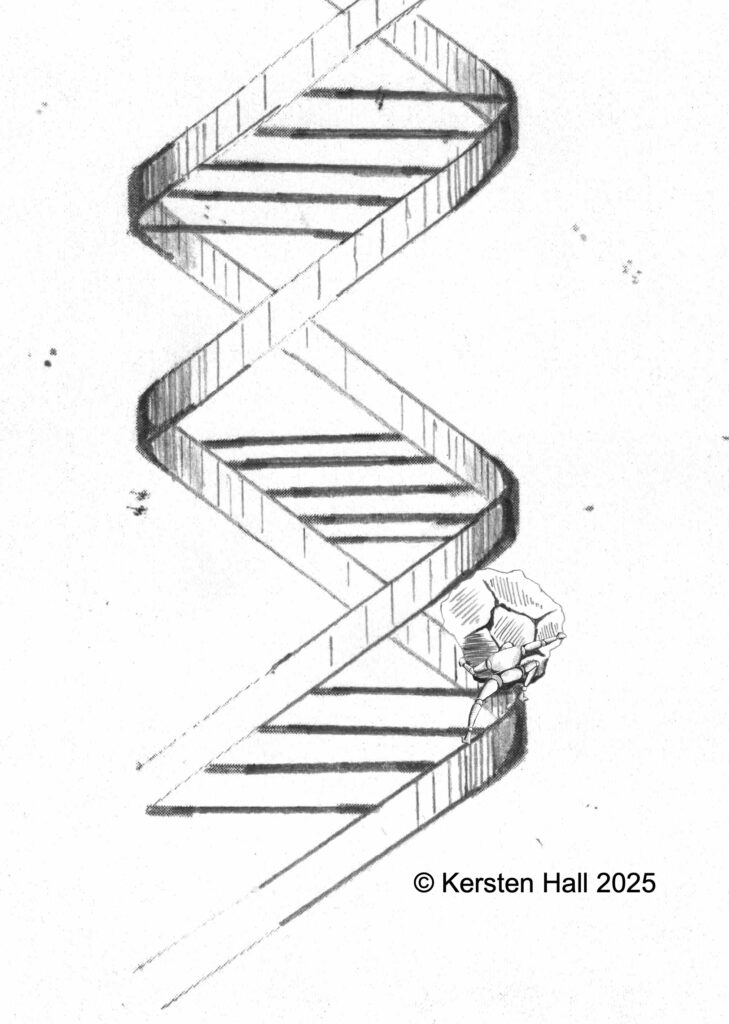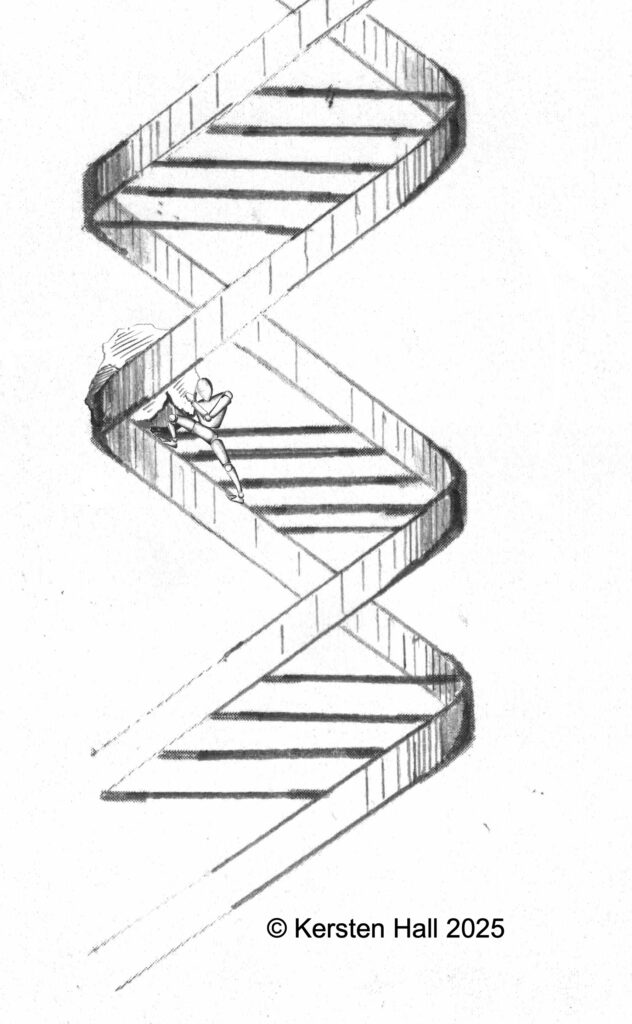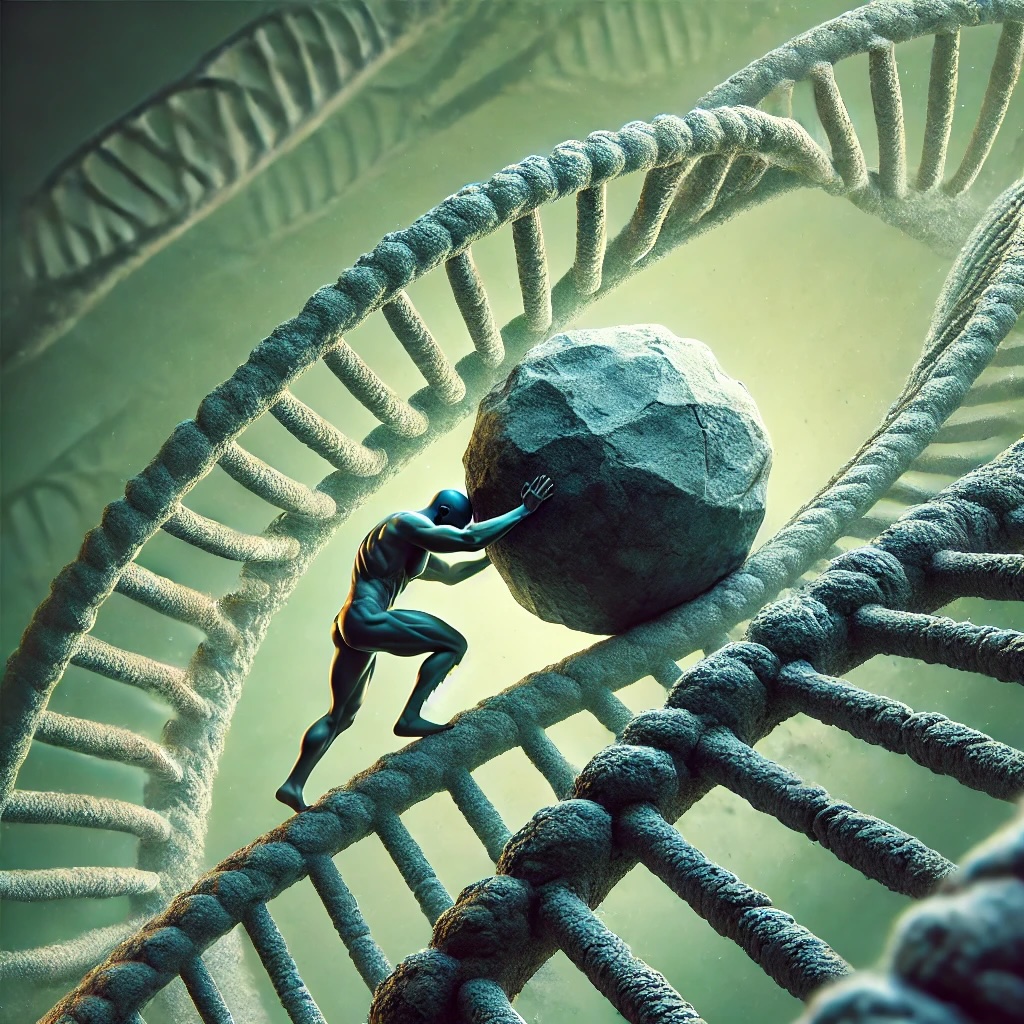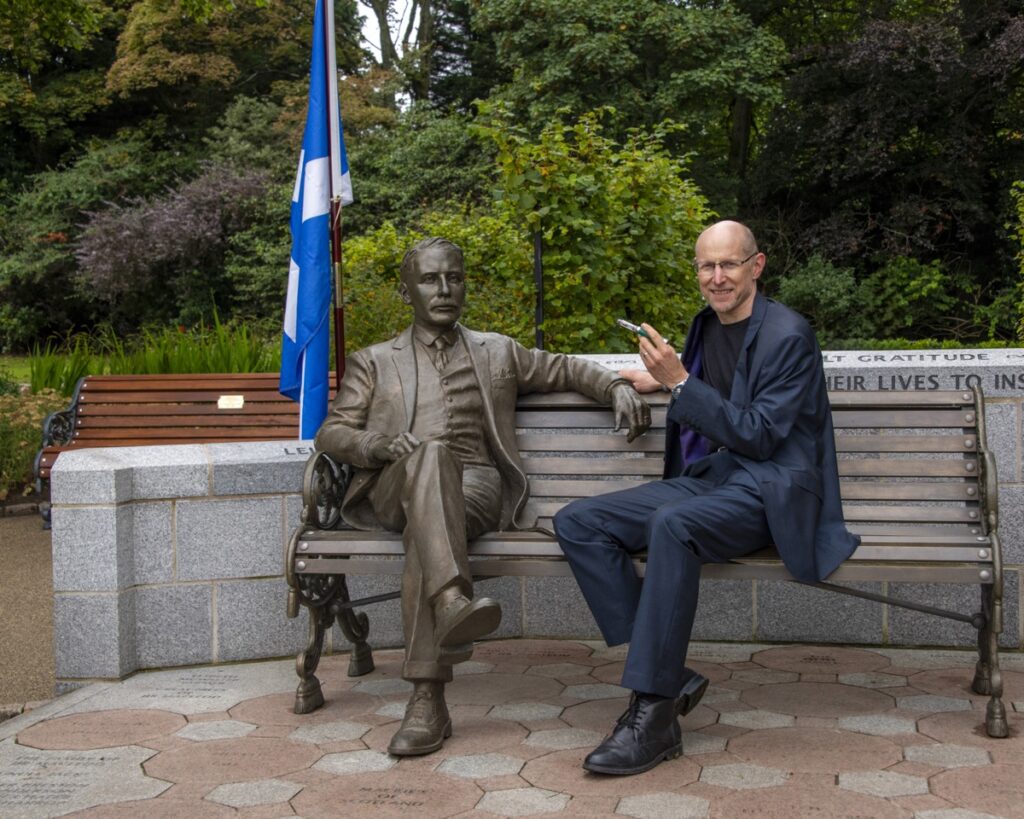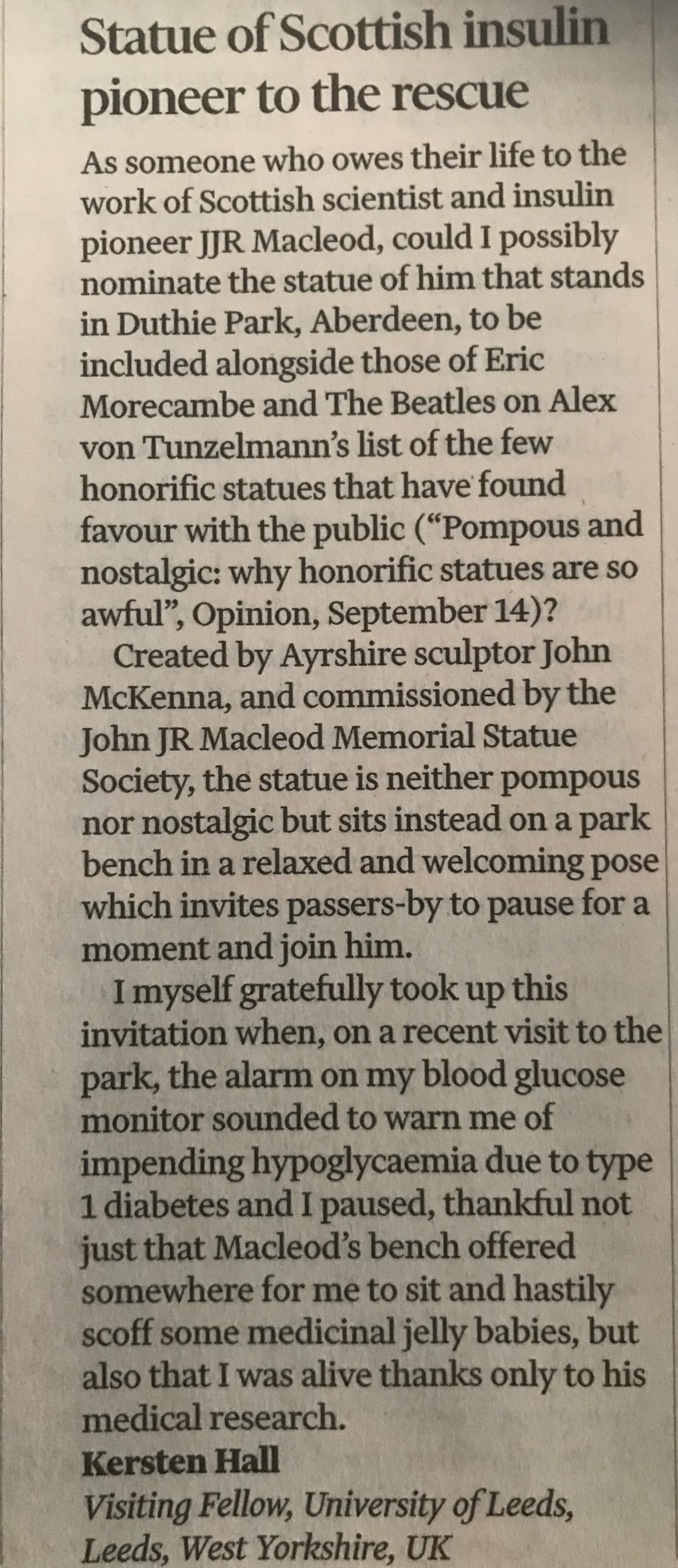Does science advance thanks to lone geniuses and their Eureka moments?…or is it more like Sisyphus in Greek mythology, doomed by the gods to spend eternity rolling a boulder up a mountain slope? 19thC Swiss scientist Friedrich Miescher who discovered DNA and is the subject of the new book I’ve been working on with Ralf Dahm, tragically compared himself to the latter. For this reason, we were hoping to get Sisyphus rolling his boulder up the DNA double-helix on the front cover of our book, but as that hasn’t proved possible…
… I took up my pencil and paper and have been busy not just writing the book, but also drawing these figures for the close of each chapter…
…and if you’re wondering why Sisyphus has been transformed into a crash-test dummy…well, all is explained in the intro to our book…(in my first sketches, he looked too much like Iron Man!)
